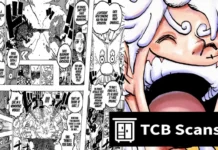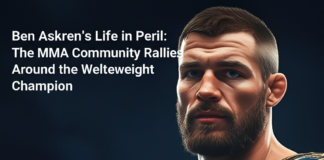With its unique allure and potential for lucrative trades, CS:GO skin trading has emerged as a phenomenon within the online gaming world. The exchange of rare and coveted skins, coupled with a sense of community engagement, has contributed to its widespread appeal.In this article, we aim to provide a comprehensive understanding of CS:GO skin trading and its impact on the gaming community.
The Appeal of Skin Trading in CS:GO
CS:GO skin trading’s popularity stems from its appeal in various areas, with the economic value of rare skins enticing players seeking profits. Marketplaces enable skin exchange, fostering community engagement and investment opportunities for virtual inventories, while coveted skins elevate social status within the CS:GO community. But that’s not it. There is a little bit more information you need to have:
Economic Value
The appeal of skin trading in CS:GO lies in the economic value attached to certain skins. Rare and aesthetically pleasing skins often fetch high prices in the virtual marketplace. Players can take advantage of this by acquiring valuable skins through trading or opening loot boxes, and then selling them to others who desire those items.
Marketplaces
CS:GO’s skin trading community is supported by various online marketplaces. These online skin trading platforms enable players to list their skins for sale or trade, providing a vast array of choices for both buyers and sellers. The availability of these marketplaces fosters a dynamic and active trading scene, promoting engagement and interaction among players.
Investment Opportunities
For some players, skin trading goes beyond mere in-game cosmetic enhancements; it becomes an investment opportunity. As the value of certain skins fluctuates over time due to factors like popularity, scarcity, and in-game updates, players can speculate on their future worth. Buying skins at lower prices and holding onto them until they increase in value allows players to potentially profit from their investments.
Social Status
In the CS:GO community, owning rare skins can bestow a sense of social status. Valuable skins are often associated with skill and experience, indicating that the player using them is proficient in the game or has been dedicated enough to acquire such valuable items. Displaying these skins during matches or in player profiles can garner admiration from other community members.
Online Gaming Communities and Skin Trading
Online gaming communities have witnessed significant growth, leading to the emergence of new social platforms where players can interact and engage. We would like you to get some information about a few significant trends in this area:
The Emergence of Online Communities
Online gaming communities serve as virtual gathering places where players from different parts of the world can connect, share experiences, and form friendships based on shared gaming interests. Platforms such as Steam, Discord, and Reddit have played crucial roles in fostering these communities, enabling players to discuss game strategies, updates, and, importantly, engage in skin trading activities.
Trading Strategies
Skin trading within online gaming communities has given rise to a myriad of trading strategies. Players often seek to optimize their trades to acquire desired skins or make profitable exchanges. Some players focus on short-term gains, capitalizing on market trends and price fluctuations to buy low and sell high. Others specialize in long-term investments, carefully holding onto valuable skins with the expectation of increased worth over time.
Scams and Security
As skin trading gains popularity, the risk of scams and security breaches becomes a significant concern for players. Scammers often employ deceptive tactics to trick unsuspecting individuals into giving away their valuable skins without receiving anything in return. To combat these threats, gaming platforms and online communities continuously implement security measures, such as two-factor authentication and trade confirmation systems.
Regulation and Controversy
The world of skin trading in online gaming has not been without its share of regulation and controversy, and there are a few steps that you should follow in order to be on the safe side. Here they are:
Legal and Ethical Concerns
The convergence of real-world monetary value and virtual items in CS:GO skin trading has led to discussions about legal and ethical standards. Upholding legal and ethical standards in the industry is crucial to ensure a transparent and responsible environment, protecting players’ rights. Responsible practices by platforms, developers, and players can help maintain the integrity of the virtual economy and uphold ethical standards in the CS:GO skin trading community.
Developer Interventions
Game developers play a pivotal role in regulating skin trading within their respective games. To maintain a balanced in-game economy and preserve the integrity of gameplay, developers may implement trade restrictions, item price adjustments, or even outright bans on certain skin trading activities. Addressing issues related to scammers, hackers, or unfair trading practices also falls within the purview of developer interventions.
Community Feedback
The online gaming community’s voice is a potent force in shaping the landscape of skin trading. Community-driven discussions on forums, social media, and other platforms influence developers’ decisions and prompt them to address pressing concerns. Additionally, the community’s response to changes in the skin trading system can lead to further adjustments and improvements.
The Future of CS:GO Skin Trading
The future of CS:GO skin trading is set to be shaped by evolving market trends and the integration of new technologies. These factors are likely to bring significant changes to the trading landscape. Here is more about the future of skin trading in CS:GO:
Evolving Market Trends
As the gaming industry continues to evolve, the market trends in CS:GO skin trading are bound to follow suit. The demand for certain skins may shift based on changes in game mechanics, the introduction of new weapons. Players’ preferences and tastes may also evolve over time, influencing the popularity of specific skins.
Integration of New Technologies
Advancements in technology will play a significant role in shaping the future of CS:GO skin trading. Improved blockchain technology could provide more secure and transparent trading platforms, reducing the risk of scams and enhancing trust within the community. Virtual reality (VR) and augmented reality (AR) could revolutionize how players interact with their virtual inventories.
To Wrap Up!
In conclusion, the excitement of owning and trading rare skins, the bonds formed within gaming communities, and the potential for profitable ventures have all played a part in its enduring allure. While navigating challenges related to regulation and controversy, the future of CS:GO skin trading holds promise, as long as it continues to offer a responsible and engaging experience for players.































![POF Free Dating App APK Download For Android [Updated 2021] POF Free Dating App](https://mobupdates.com/wp-content/uploads/2019/03/POF-Free-Dating-App-100x70.jpeg)









 Online casino
Online casino